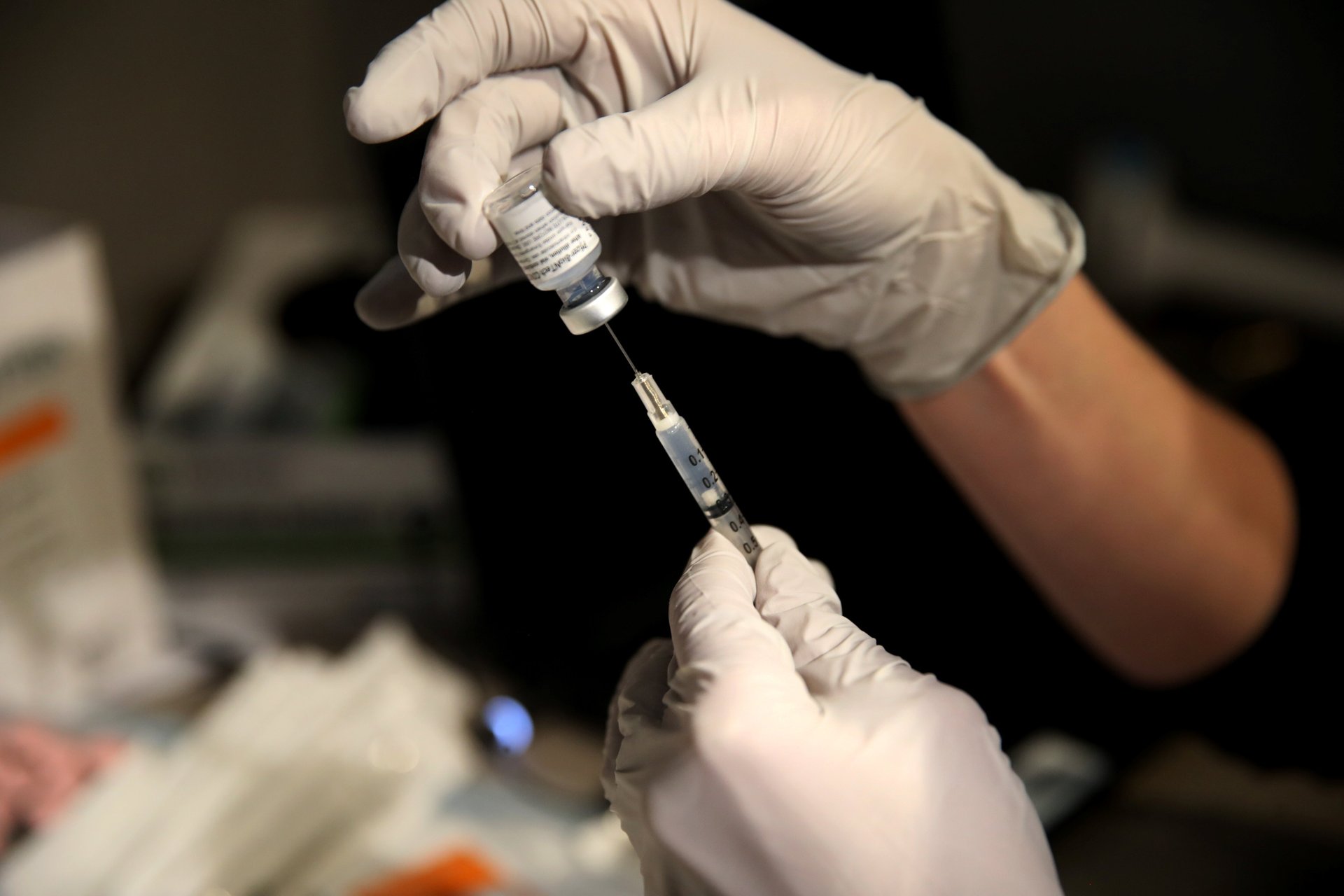What happens if you’re allergic to a Covid-19 vaccine
As the first Pfizer-BioNTech Covid-19 vaccine is rolled out across the US and Europe, excitement has been somewhat dampened by a small number of responses among the first thousands of recipients: As of Dec. 17, two people in the UK and one in the US had severe allergic reactions to the shot. They all quickly recovered.


As the first Pfizer-BioNTech Covid-19 vaccine is rolled out across the US and Europe, excitement has been somewhat dampened by a small number of responses among the first thousands of recipients: As of Dec. 17, two people in the UK and one in the US had severe allergic reactions to the shot. They all quickly recovered.
This prompted UK health officials to recommend that doctors monitor patients for 15 minutes after receiving the vaccine to watch for reactions, and that anyone with a history of anaphylaxis should not receive the vaccine. Though when the US Food and Drug Administration first authorized the vaccine for use on Dec. 11, it initially suggested that clinicians not administer that vaccine to patients with a history of anaphylaxis, it reversed its decision just two days later, before the first reports of anaphylaxis came in on Dec. 14.
Allergic reactions—and their more severe form, anaphylaxis—happen when a person is exposed to an allergen, a list of substances that can include anything from foods (nuts, shellfish, gluten) to other elements in the environment, such as pet dander, pollen, latex, or bee stings. When an allergic person is exposed to this substance, their body perceives it as a threat, triggering an immune response that can range from mild inflammation to system-wide shock, depending on the severity of the allergy.
While it’s common to have an allergy—an estimated 50 million Americans have them—anaphylactic reactions, which affect more than one of the body’s systems, are relatively rare. Such acute reactions can be life-threatening if untreated, which is why people with acute allergies often carry EpiPens (the active ingredient, epinephrine, acts quickly in the body to stop the throat from closing, which patients then follow with an antihistamine like Benadryl to more slowly quiet the immune response).
The Pfizer-BioNTech clinical trials excluded people with a history of anaphylaxis, so the rate of severe reactions seen in the trials—in 0.63% of vaccine recipients, compared to 0.51% of placebo recipients—may be higher in the general population. But this is hardly the first vaccine to elicit an allergic reaction.
The most common annual flu vaccine is produced with eggs, so it contains a small amount of egg protein that can trigger allergic responses in recipients allergic to eggs. This isn’t really a problem if you know you have an egg allergy—there are now versions of the flu vaccine that contain no egg—but if you don’t know before you get the shot and you’re not being observed by a medical professional, it could be risky.
No one’s sure yet what ingredient in the Pfizer-BioNTech vaccine is causing these rare but significant allergic reactions. Some medical professionals suspect it’s an ingredient called polyethylene glycol (PEG). PEG is common in all sorts of products, from skincare to laxatives. But in this vaccine, as well as in a few others, it’s used in small quantities to stabilize the mixture. PEG has caused rare but severe allergic reactions in the past, which is why some experts suspect this is the allergen in the new vaccine. But without further testing, it’s impossible to know for sure.
The good news is, if you get the vaccine and you have an allergic reaction to it, your anaphylaxis is likely treatable. Allergic reactions usually happen within 30 minutes of exposure to an allergen, so be sure you’re able to be monitored after you receive the vaccine at an appropriate social distance from other patients.